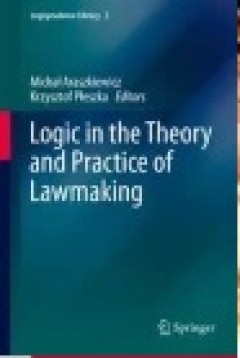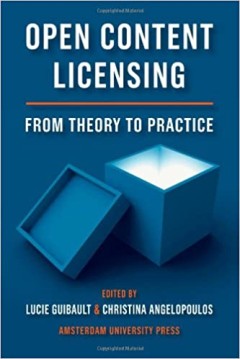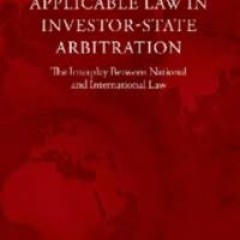Filter by

Historians as Expert Judicial Witnesses in Tobacco Litigation:A Controversial…
Historian Ramses Delafontaine presents an engaging examination of a controversial legal practice: the historian as an expert judicial witness. This book focuses on tobacco litigation in the U.S. wherein 50 historians have witnessed in 314 court cases from 1986 to 2014. The author examines the use of historical arguments in court and investigates how a legal context influences historical narrati…
- Edition
- -
- ISBN/ISSN
- 978-3-319-14291-3
- Collation
- XXV, 453
- Series Title
- -
- Call Number
- 340 DEL h
Wetlands Law : A Course Source
he Wetlands Law Course Source can be used as the primary text for a two credit seminar or as a supplemental text to cover wetlands material in an environmental law, natural resources law, or water law course. In addition, the administrative law chapter can be used as a supplement in a range of administrative law-related courses, such as environmental law, health law, labor law, immigration law,…
- Edition
- -
- ISBN/ISSN
- -
- Collation
- -
- Series Title
- -
- Call Number
- 340 JOH w
The Story of Contract Law : Formation
Before the American Revolution, the American states were British colonies. English law, including English contract law, applied in each of the thirteen colonies. The Revolutionary War freed the colonies from the British crown, but each of the new states continued to apply primarily English contract law. The federal government came into existence in the 1780s as a government of limited power…
- Edition
- -
- ISBN/ISSN
- -
- Collation
- -
- Series Title
- -
- Call Number
- 340 RIC s

Logic in the Theory and Practice of Lawmaking
This book presents the current state of the art regarding the application of logical tools to the problems of theory and practice of lawmaking. It shows how contemporary logic may be useful in the analysis of legislation, legislative drafting and legal reasoning concerning different contexts of law making. Elaborations of the process of law making have variously emphasised its political, soc…
- Edition
- -
- ISBN/ISSN
- 978-3-319-19575-9
- Collation
- -
- Series Title
- -
- Call Number
- -

Fair Reflection of Society in Judicial Systems - A Comparative Study
This book addresses one central question: if justice is to be done in the name of the community, how far do the decision-makers need to reflect the community, either in their profile or in the opinions they espouse? Each contributor provides an answer on the basis of a careful analysis of the rules, assumptions and practices relating to their own national judicial system and legal culture. Writ…
- Edition
- -
- ISBN/ISSN
- 978-3-319-18485-2
- Collation
- 2 b/w illustrations
- Series Title
- -
- Call Number
- -

EcoJustice, citizen science and youth activism : situated tensions for scienc…
This volume draws on the ecojustice, citizen science and youth activism literature base in science education and applies the ideas to situated tensions as they are either analyzed theoretically or praxiologically within science education pedagogy. It uses ecojustice to evaluate the holistic connections between cultural and natural systems, environmentalism, sustainability and Earth-friendly mar…
- Edition
- -
- ISBN/ISSN
- 9783319116082
- Collation
- -
- Series Title
- -
- Call Number
- 344.046

Status of Forces: Criminal Jurisdiction over Military Personnel Abroad
This book brings into focus the legal status of armed forced on foreign territory within, inter alia, the context of multi-national exercises and a variety of so-called crisis management operations. When it comes to criminal offences committed by military personnel while abroad it is important to know whether such offences fall under the criminal jurisdiction of the Sending State or that of the…
- Edition
- -
- ISBN/ISSN
- 978-94-6265-057-2
- Collation
- -
- Series Title
- 1 b/w illustrations, 9 illustrations in colour
- Call Number
- XIV, 270

Economic sanctions under international law : unilateralism, multilateralism, …
Since the Second World War, States have increasingly relied upon economic sanctions programs, in lieu of military action, to exert pressure and generally to fill the awkward gap between verbal denunciation and action. Whether or not sanctions are effective remains a point of contention among policymakers. Frequently asked questions include whether any legal order constrains the use of sanctions…
- Edition
- -
- ISBN/ISSN
- 9789462650510
- Collation
- -
- Series Title
- -
- Call Number
- 341

Open Content Licensing : from Theory to Practice
Although open content licences only account for a fraction of all copyright licences currently in force in the copyright world, the mentality change initated by the open content movement is here to stay. To promote the use of open content licences, it is important to better understand the theoretical underpinnings of these licences, as well as to gain insight on the practical advantages and inc…
- Edition
- -
- ISBN/ISSN
- 978 90 4851 408 3
- Collation
- -
- Series Title
- -
- Call Number
- 348 OPE

Applicable Law in Investor–State Arbitration
This book examines the law, national and/or international, that arbitral tribunals apply on the merits to settle disputes between foreign investors and host states. In light of the freedom that the disputing parties and the arbitrators have when designating the applicable law, and because of the hybrid nature of legal relationship between investors and states, there is significant interplay bet…
- Edition
- -
- ISBN/ISSN
- 9780199656950
- Collation
- -
- Series Title
- -
- Call Number
- 348 KJO a
 Computer Science, Information & General Works
Computer Science, Information & General Works  Philosophy & Psychology
Philosophy & Psychology  Religion
Religion  Social Sciences
Social Sciences  Language
Language  Pure Science
Pure Science  Applied Sciences
Applied Sciences  Art & Recreation
Art & Recreation  Literature
Literature  History & Geography
History & Geography